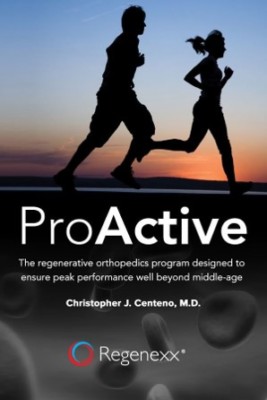Can You Excerise Too Much or Is More Better?

Can you, in general, exercise too much? Meaning, we’ve all seen the rare soul who just drops dead while exercising. So does the research support that there is a Goldilocks zone of exercise? Not too little nor too much? New research looked at that issue, and what they found was startling.
You Can’t Exercise Too Much, but You Can Exercise Too Little
The purpose of the new study was to investigate all-cause mortality (deaths from any cause) at many fitness levels. Following treadmill testing, each participant was grouped into one of the following cardio fitness groups and followed for over eight years: low, below average, above average, high, and elite. Researchers found lower mortality in the most-fit group compared to the other groups (80% lower, in fact, when comparing the most-fit group [elite] to the least-fit group [low]). The study also suggests you can’t exercise so much that you “out-exercise” your mortality benefit (this finding opposes prior findings from another study that chronic vigorous exercise can increase mortality risk). Interestingly, in the high-fitness group, older patients, age 70 and above, and those with hypertension in the elite-fitness group had significantly lower mortality rates.
Opposing Studies on Too Much Exercise?
One of the most confusing things about science is how opposite conclusions can exist. We see this all the time. A new study is reported in the news as claiming that X is great for you and then another study shows that it’s bad for you. In these cases, it’s best to look at the aim of the research, how it was conducted, and the size of the studies.
One of the studies that showed issues with high-level exercise was on athletes with atrial fibrillation, a heart rhythm abnormality. While it concluded that the dose of exercise was directly correlated with death rates, it looked at only 1,500 people, and the goal of the study was to determine if patients with a known heart disease had an adverse response to exercise. Another study looked at the presence of heart blockages (plaques) in just under 300 athletes and found more plaques in the highest exercise group, but the composition of these blocked arteries was more benign. Finally, one investigation looked at the rare condition of heart scarring in just under 20 athletes found in several larger studies.
Going the other direction is, of course, this massive research paper we’re reviewing this morning with more than 122,000 patients! I also identified another study where the authors looked at almost 1.5 million person-years of follow-up and also found that more exercise was better at lowering mortality risk. So if we compare the balance of the evidence, the more-exercise-is-better camp wins the day here.
Can You Exercise Too Little?
The key takeaway here is that exercise keeps the heart and body healthy, lessening the risk of mortality, and increasing life-span. In addition, you can’t really exercise too much to enjoy those decreased mortality benefits. On the other end of the spectrum, however, you can exercise too little; a sedentary lifestyle increases your risk of mortality via metabolic disorders, heart disease, musculoskeletal conditions, and so on.
How Much Exercise Do I Need?
Obviously, very few of us would fall into the elite-fitness category, but that doesn’t mean performing at the average fitness level isn’t doing anything for you. While your mortality risks might not be quite as low as those in the elite category, you’re still getting exercise benefits and lowering your mortality risk. So how much exercise do you need to appreciate its benefits?
First, it’s important to understand that it’s never too late to start exercising. So if you already know you haven’t even stepped onto the bottom rung of the exercise ladder, meaning, you’re lifestyle is primarily sedentary, with your doctor’s clearance, you can start exercising now. One study found that those who are over the age of 45 and unfit can actually reverse their heart risks with just 30 minutes of exercise at least four days each week. Another study looked at those starting exercise around age 60, and even those who exercised at a lower level, less than the AHA recommendations, experienced heart benefits if they stuck with regular exercise for six years. For regular exercisers, cardiovascular benefits can be experienced with exercise only two or three times each week. This doesn’t mean you shouldn’t challenge yourself to achieve your full fitness potential; however, if you’re working your way out of a sedentary lifestyle, it’s good to see that every step counts.
Exercise Benefits Don’t Stop at the Heart
Exercise doesn’t only make the heart happy; it makes the whole body happy. Let’s review a few of the other benefits you can expect from exercise:
- Brain Benefits: Ten minutes of exercise is all that is needed to give your exhausted brain a mid-day boost.
- Gut Benefits: Regular, ongoing exercise improves both the composition and function of the gut environment.
- Weight Benefits: Exercise that challenges your limits not only helps with weight loss, but helps you maintain a healthy weight once achieved.
- Muscle Benefits: Muscle health as we age is extremely important for staying active, and exercise is one key to keeping muscles health.
What If I Can’t Exercise Due to Pain?
One of the more common things I see every day is patients who want to exercise but can’t because of pain. We can usually help these patients get more active, but some have let things get so bad that they can’t be returned to their most active self. So how can you prevent that fate?
I always try to push patients toward treating small issues in their bodies while they’re small and toward being proactive with treatment. To this end, we see countless patients every year who ask us to target precise platelet or stem cell procedures at little nagging spots that they know will one day prevent them from getting after it as hard as they would like. I wrote a whole book about this concept (click on the cover image to read):
The upshot? The balance of the research shows that unless you have known heart disease, you can never get too much exercise! Hence, get out there and hit it hard as often as you can!

NOTE: This blog post provides general information to help the reader better understand regenerative medicine, musculoskeletal health, and related subjects. All content provided in this blog, website, or any linked materials, including text, graphics, images, patient profiles, outcomes, and information, are not intended and should not be considered or used as a substitute for medical advice, diagnosis, or treatment. Please always consult with a professional and certified healthcare provider to discuss if a treatment is right for you.

